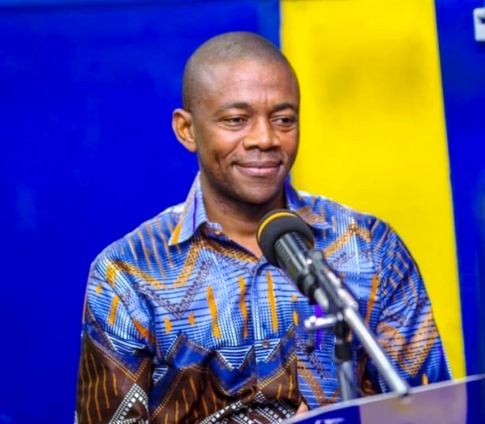The Deputy Director of the National Service Scheme (NSS), Fuseini Donkor, has clarified that personnel under the scheme will undergo a military orientation programme, not full military training, as part of a newly introduced module aimed at building discipline and preparedness among Ghanaian youth.
Speaking on JoyNews’ AM Show, Mr. Donkor addressed growing public misconceptions surrounding the programme.
“People have been referring to it as ‘military training’, but according to the Ghana Armed Forces, the accurate term is ‘military orientation’. This distinction is important,” he emphasised. “It is not about learning to fire weapons or surviving in the jungle.”
He noted that the public perception of military training is often outdated and misleading.
“All most people know about military training is the harsh stories — being sent into the forest with no food and little water. That’s the image we’ve all grown up with. But it will surprise you to know that the military actually teaches modules like report writing, communication skills, emergency care, and other essential soft skills — many of which are already part of university education.”
Mr. Donkor explained that even NSS management had initial misconceptions until they engaged directly with the military.
“Until we engaged directly with the military and saw the full programme structure, even we assumed it was all saluting and marching drills. But what they offer is far more comprehensive and practical.”
He emphasised that the primary objective of the orientation is to instil discipline, improve time management, and equip service personnel with essential emergency preparedness and response skills — tools that are critical for both national service and life after school.
“What we’re taking them through is not military training. It’s orientation. It’s about discipline, structure, and learning how to act under pressure.”
At this stage, participation in the programme is voluntary, but plans are underway to make it mandatory in the near future.
“We’re starting cautiously to ensure proper implementation. The military’s training centres across the country currently have the capacity to host 5,000 personnel. We’ve also partnered with a university to provide additional facilities for another 5,000.”
The pilot phase is scheduled to commence this August, involving a total of 10,000 NSS personnel.
“We’ll assess the outcomes, evaluate how the training affects their performance, gather feedback, and monitor their progress. Once we’re confident in the results, we’ll roll it out nationwide as a mandatory part of the NSS experience,” he said.
According to Mr. Donkor, the broader aim is to raise a disciplined, patriotic, and productive generation that is equipped not only for the job market but for nation-building.
“Once these young people understand time management and discipline, and receive this additional training beyond the classroom, they will leave the university system better prepared and with an extra edge. Every graduate should be able to offer more than just academic qualifications and this programme helps make that possible,” he said.
President John Dramani Mahama, during his State of the Nation Address on Thursday, February 27, announced the introduction of a short military training programme as part of the National Service Scheme (NSS).
This initiative is designed to instil discipline and foster a strong sense of civic responsibility among Ghana’s youth. President Mahama emphasised the profound importance of this programme, underlining its potential to positively shape the character and values of young Ghanaians, preparing them to become responsible, patriotic, and productive citizens committed to national development.


